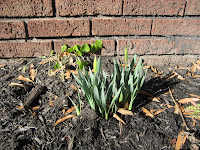We are a frugal couple. Our shoes are a sight to behold. We were presumed to be homeless once when walking through an affluent neighborhood looking at houses, before we bought our current one. From the beginning of our relationship, we have preferred the "cheap date" to more expensive ones. Here's a list of ideas:
1. Split a small pizza at a local establishment. Drink water or go during Happy Hour and get 2 drinks for the price of one. You'll be full enough, with no waste.
2. Walk, if you can. Sunsets and moonlit evenings are much better enjoyed on foot than in a car, looking for traffic signals and road signs. Conversation is easier, too.
3. Small, local cafe-type restaurants or delicatessens often have great food at reasonable prices, and in reasonable portions. There again, no waste.
4. Go to the free events like concerts or Shakespeare in the Park. They'll ask for a donation, and that's good, but even your donation will be cheaper than theatre tickets. Even theatres often have matinee performances or "nosebleed section" seats that are cheaper.
5. Some bookstores have cafes, so you can eat, then enjoy some fine literature. Some even provide live music on week-ends.
6. Curl up at home with a cheap, rented movie. Pop your corn in an ordinary paper bag in the microwave- no added fat or salt, and it tastes fine.
7. Go to a park frequented by many people, take a book, lounge under a tree, and people-watch. Kids and dogs are better than cable TV.
8. Pack a lunch and water and hike some trails. We got engaged at lunch-time on a hike- the ring was at the bottom of my lunch-sack.
9. In cold weather, make soup and cornbread, followed by hot chocolate later. Put on wooly slippers and long robe. Curl up on couch with a good book and blanket. Toasty, especially if 2 can curl!
10. Never get too old to play in the snow. Build snowmen, throw snowballs, make face prints and snow angels.
11. Library books are free as long as you return them on time. Get books there for the above cheap dates.
These are our most common outings. We'll spend a bit of money sometimes, but usually it is $20 or less. We are blessed to be together, and to be able to enjoy life inexpensively.





























